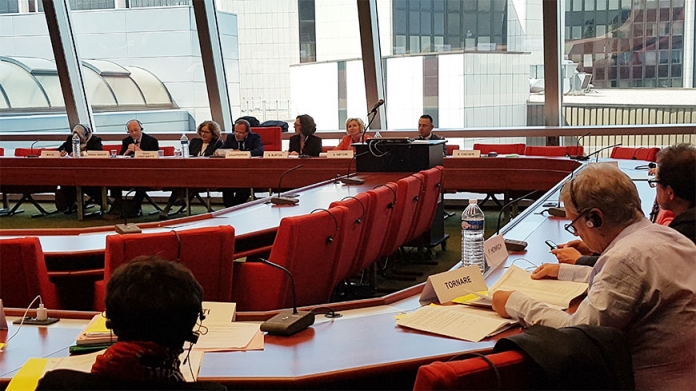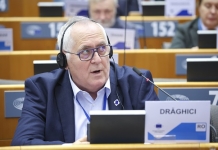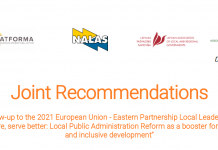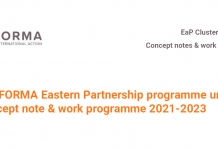“If a local authority wants truly to meet the needs of its citizens, it must communicate in a language which is readily understood and enables the citizen to participate fully and deeply in local democracy,” stated Andrew DAWSON (United Kingdom, CRE-ECR), member of the Congress Chamber of Regions, at the Parliamentary Assembly Hearing on minority languages on 25 April 2018. “It is also self-evident that a citizen has a responsibility to try to integrate” he added.
Andrew DAWSON presented an overview of the specific situation in the United Kingdom where, in some schools Polish, Bengali, Somali, Gujarati, Arabic, Tamil and Pashto are spoken by more children than English. “These languages aren’t protected by the European Charter for Regional or Minority Languages – but are spoken by many more people in the UK than the regional or minority languages that are protected,” he highlighted explaining that the Charter does not deal with the situation of new, often non-European languages which have appeared during the recent migration flows.
In a new report that will be presented at its October 2019 Session, the Congress will focus on the issues addressed in Article 10 of the Language Charter: the use of languages in local and regional administrations and the provision of public services. “When it comes to providing local public services we should not limit ourselves solely to indigenous language,” stated Andrew DAWSON. “I believe we should also weigh in the balance other important questions such as diversity and community cohesion.”
Under the general title “The use of languages by local and regional authorities” the Congress will organise a thematic conference on 31 May 2018, in Covasna County, Romania. This event will kick off the before-mentioned report around four specific debates: the use of languages in political assemblies, citizen participation, toponymy and the provision of public services.
“Maybe it is time to link the language issue more to our growing cultural and ethnic diversity. Local and regional authorities should be able to respond to local needs and to take a flexible approach,” concluded Andrew DAWSON.
The hearing “Twenty years on: Shortcomings and challenges in the use of regional or minority languages at local and regional level” was organised by the Sub-Committee on the Rights of Minorities of the Parliamentary Assemblys Committee.
The European Charter for Regional or Minority Languages (1992) is a convention designed on the one hand to protect and promote regional and minority languages as a threatened aspect of Europe’s cultural heritage and on the other hand to enable speakers of a regional or minority language to use it in private and public life. Its overriding purpose is cultural. [Document STCE n° 148]









